All Stories
-
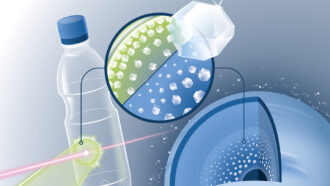 Materials Science
Materials ScienceLaser light transformed plastic into tiny diamonds
The technique could be used to make nanodiamonds for quantum devices and other technology.
-
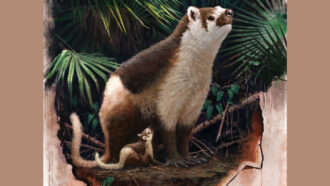 Fossils
FossilsAncient ‘ManBearPig’ mammal lived fast — and died young
Developing in the womb for a while — but being born ready to take on the world — may have helped post-dinosaur mammals rise to dominance.
-
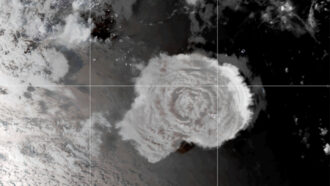 Earth
EarthOne 2022 tsunami may have been as tall as the Statue of Liberty
A massive volcanic eruption in the South Pacific, earlier this year, appears to have triggered one tsunami that was initially 90 meters (nearly 300 feet) tall.
By Sid Perkins -
 Physics
PhysicsScientists Say: Force
When an object experiences a force, its change in motion — or acceleration — depends on its mass.
-
 Health & Medicine
Health & MedicineDogs and other animals could aid the spread of monkeypox
Now that monkeypox has spread to a dog, researchers fear other species could help the virus become widespread outside of Africa for the first time.
-
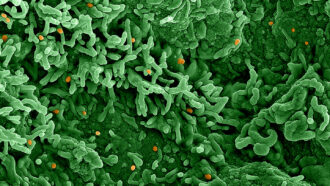 Health & Medicine
Health & MedicineExplainer: What is mpox (formerly monkeypox)?
Once rare, the viral disease monkeypox exploded onto the global scene for the first time in 2022.
By Tina Hesman Saey and Janet Raloff -
 Tech
TechWelcome to the metaverse
The idea of the metaverse comes from science fiction. But technology could make such immersive virtual worlds a reality.
-
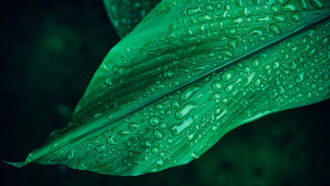 Plants
PlantsNo sun? No prob! A new process might soon grow plants in the dark
Teamwork makes green-work! Collaborating scientists came up with an electrifying farming trick that could make sunlight optional.
-
 Math
MathLet’s learn about dealing with math anxiety
Writing about math anxiety and maintaining a “growth mindset” can help soothe stress about the subject.
-
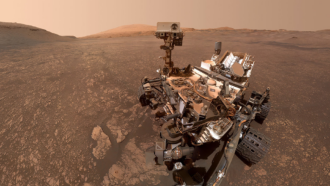 Space
SpaceMy 10 years on Mars: NASA’s Curiosity rover describes its adventure
Did life evolve on Mars? NASA’s Curiosity rover spent the last 10 years trying to answer that question. Here’s the story from the rover’s point of view.
-
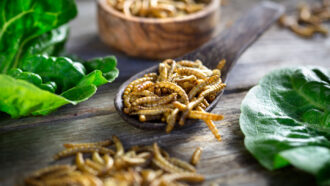 Chemistry
ChemistryNew meat-scented food flavoring comes from sugar — and mealworms
Insects could become a protein-rich part of the human diet. This new research aims to help people get past the ick of eating insects.
By Anil Oza -
 Tech
TechScientists Say: LED
LEDs, or light-emitting diodes, light up TV screens, traffic lights and many other devices used in daily life.